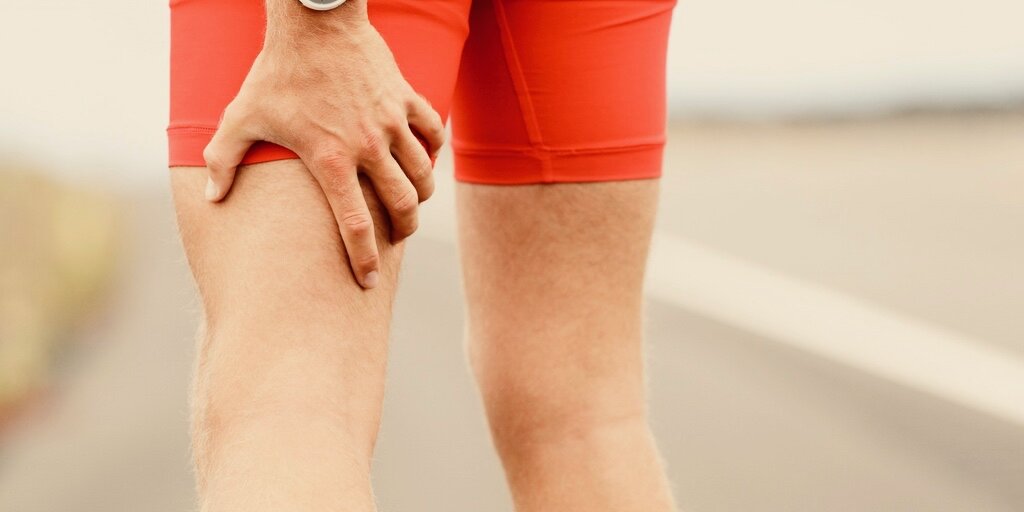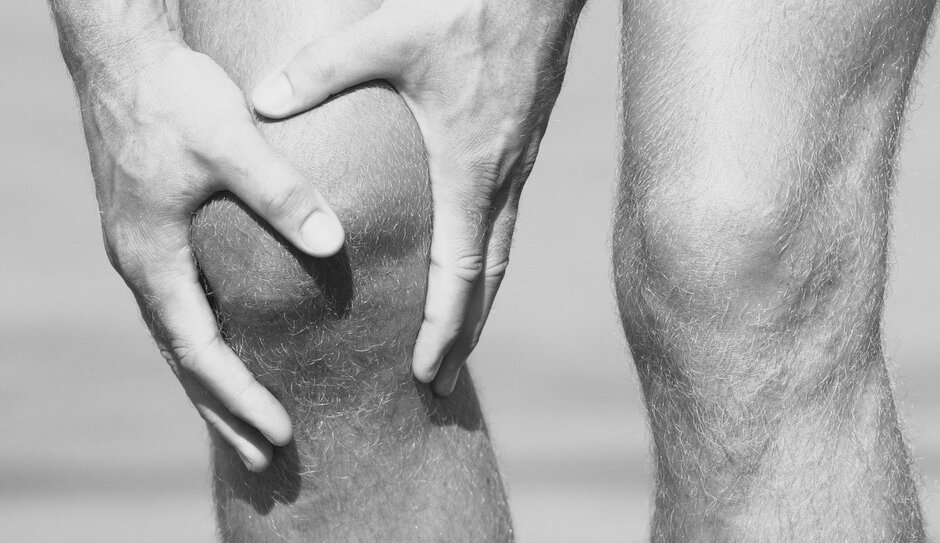Check out our top 3 stretches for neck pain and injury that can be done at home. We describe each stretch and let you know how often to stretch and for how long.
Read moreMy 5 Tips For Getting (And Staying) Fit In The New Year
It’s well known that it’s the busiest time of year for gyms and health clubs as New Years resolutions kick in, but it’s equally well known that the numbers dwindle again by the end of the month as people fall off the exercise wagon. Sometimes this is due to injury, sometimes to loss of motivation so here are my 5 tips for improving and maintaining your fitness into the new year.
Read moreHip Pain That Won't Go Away
Pain around the hip and groin area is one of the more common chronic or long-term conditions that we see in the clinic. This area is very complex and the source of pain can be from any number of structures including the hip, pelvis, or lower back. Chronic pain in this area can be seen in all ages of people such as footballers with chronic groin strains or pensioners with arthritis in the hip.
Read moreMyths And Misconceptions of Physiotherapy
While the demand for physiotherapists continues to rise and many patients are experiencing the positive effects of physiotherapy, some misconceptions persist.
There are a number of myths and misconceptions that prevent people from having physiotherapy that need to be overcome to ensure that as many people as possible benefit from it.
It is our experience that some people will live with pain and discomfort for some time assuming it is simply due to age, but who have improved significantly with appropriate physiotherapy treatment.
So, what are some of the common physiotherapy myths?
Read moreShoulder pain. Is it coming from the shoulder?
If you’ve been experiencing shoulder pain, you’re probably not alone. Up to two-thirds of adults report shoulder-related symptoms at some point in their lives. For a small number the pain doesn’t go away by itself which affects daily activities and quality of life in the long term. However, the important thing is you don’t have to accept pain as your “new normal”.
Read moreHow To Deal With A Hamstring Injury
A hamstring injury typically causes a sudden, sharp pain in the back of the thigh that may stop you mid-stride. After such an injury you may have difficulty extending the knee without pain. Like most sprains and strains, hamstring injuries are usually caused by excessive stretching (tearing) of muscle fibres or other soft tissues beyond their limits. To understand the injury and to find out the best way to treat and prevent hamstring problems, read our full blog.
Read moreUse POLICE For Early Injury Management
We all get soft tissue injuries from time to time, whether you’ve gone over on your ankle while out walking, fallen on ice or ran too hard at the kids sports day! The end result is usually the same – bruising, swelling and plenty of pain.
Read moreKeeping Active In Retirement
The world health organisation (WHO) indicates that older adults should aim for at least 150 minutes of moderate activity every week. Physical activity and exercise are key contributors to lifelong independence and wellbeing in the older population. Many adults aged 65 and over spend, on average, 10 hours or more each day sitting or lying down, making them the most sedentary age group.
Read moreRunners Knee
Of the various aches and niggles that are common in runners, runners knee is one of the most common and can also be one of the most debilitating. Runners knee is the layman term for Patellofemoral Pain Syndrome, a condition that causes pain in the front of the knee due to irritation of the underside of the kneecap.
Read moreBursitis - A Common Cause Of Hip, Knee And Shoulder Pain
Bursitis is perhaps the most misunderstood and misdiagnosed condition affecting the body. A bursa is a fluid filled sac that your body uses to decrease friction. They are typically found near the point that tendons attach to bone, such as at the elbow, kneecap, and hip, so that the tendon slides harmlessly over the bursa and does not get damaged by the hard surface of the bone.
Read moreCommon Office Related Work Injuries Including Sciatica, Back Pain & Tennis Elbow
The most common office injuries are neck, shoulder and upper back pain and stiffness (with, or without tension headaches), carpal tunnel syndrome, tennis elbow, lower back pain and sciatica. Most office related injuries are caused by bad posture while working at a computer resulting in the early degradation of structures within the body.
Read more5 Tips For New Mums to Avoid Back Pain
One of the most common problems we see in the clinic is new mums with backache. Some of this is due to hormonal changes within the body whilst pregnant, but another main cause is due to the stresses of carrying a child and prolonged postures you find yourself in. There are ways that you can help yourself in order to prevent back pain. Here are the 5 tips that I often give my patients.
Read more5 Posture Tips to Avoid Back and Neck Pain
The vast majority of back and neck problems that we see in the clinic can be traced back to having poor posture. My belief is that our bodies weren’t designed to sit as much as we do in modern life. Whether it is at a desk, in the car, or at home on the sofa, poor posture will over time lead to stiffness and pain. Luckily most of these problems can be avoided by taking care of your spine with good posture. Here are my 5 top tips on keeping a good posture.
Read moreOsteoarthritis Myths and Misconceptions
Here's some specialist advice from our physiotherapist Quinton Caulfield on how to maintain an active, healthy lifestyle into your advanced years. Osteoarthritis (OA) is very common in the UK, affecting around eight million people. The joints in the spine, knees, hips, and hands are the most commonly affected. If you have been diagnosed with OA, it doesn’t mean that you have to live with the pain and stiffness.
Read more5 Ways To Help Jaw Pain or Clicking
Symptoms of TMD are facial pain, headaches, jaw clicking, jaw locking, ringing in the ears, tooth pain, neck or shoulder pain, facial tingling or teeth grinding. There are many causes of TMD including arthritis in the joint, whiplash, sports injuries, stress, a blow to the head, orthodontics, poor posture, and habits such as chewing gum or nail biting. Any of these can damage the structures of the jaw joint causing pain, and if the disc is damaged this can lead to clicking or locking of the jaw.
Read moreHow We Fix Chronic Back Pain
One of the most common complaints that people coming into the clinic have is of ongoing back pain. This is usually an issue that has been nagging for a long time, flaring up from time to time, settling back down again but never really going away completely. Often these flare ups are happening more frequently which is the driver for seeking some help. The good news is that these problems can always be helped and symptoms can be settled long-term.
Read moreFREE Chronic Back Pain Workshop
Many people with long-term back pain put it down to simply having a ‘bad back’. The reality is that living with back pain is not necessary and it can almost always be resolved. If you are suffering with long term back pain, why don’t you start by attending one of our educational workshops.
Read moreKnee Osteoarthritis
It is often thought that there is nothing that can be done for osteoarthritis but there are many ways that the condition can be managed so that pain levels can be reduced and activity levels increased.
Read moreIntramuscular Stimulation (IMS) for Chronic Pain
If you suffer from long-term back and neck pain, chronic tightness in your shoulder or hip, tendinitis or arthritis, IMS could really be the cure you are looking for. IMS has a remarkable success rate, reducing symptoms in long term chronic conditions that may have been present for months or even years, giving long lasting and often permanent results. Some other conditions in which an underlying neuropathy is commonly a factor are whiplash, headaches, shoulder pain, and chronic hip/groin pain.
Read moreTennis Elbow - you don’t need to play tennis to get it
It’s that time of year when Wimbledon is on our TV’s and the country gets enthralled in tennis for a couple of weeks. It got me thinking about one of the common injuries we treat at The Physiotherapy Place - tennis elbow.
Read more

















